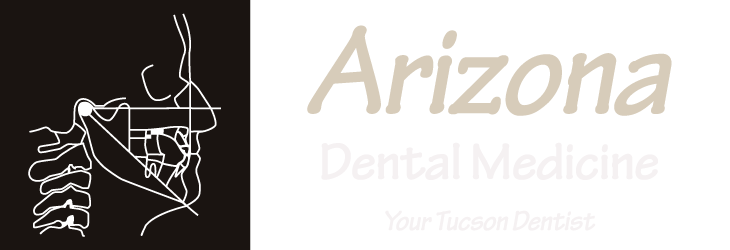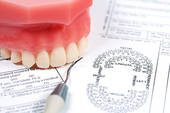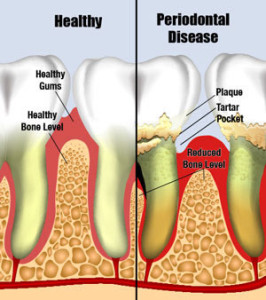 Important Facts to Help Make Your Decision
Important Facts to Help Make Your Decision
Many people are unaware of the consequences of losing their teeth or the effects of wearing partial or full dentures upon their jaws and bones. When teeth are lost, the surrounding bone immediately begins to shrink [atrophy]. Implant treatment, for tooth replacement therapy, can be the optimal treatment plan. Here are some important facts to take into consideration.
- Wearing dentures [plates] accelerates bone loss, and old dentures become loose because of this bone loss. It is possible to watch and wait for bone to disappear to the point where treatment success of any kind is in doubt.
- At the end of a five-year period, only 40% are still wearing the original partial denture made for them. This is not a great testimonial for value and utility. Those lucky enough to have a functioning partial denture after 5 years are still losing valuable supporting bone.
- Of those patients who wear a partial denture, 50% chew better without it.
- One study showed that after 8 years, 40% of the supporting teeth [abutments] that the partial hooks onto were lost through tooth decay or fracture.
- Patients with natural teeth can bite with about 200 pounds of force. Denture wearers can bite with approxiametly 50 pounds of force. Those wearing dentures for 15 years or more can bite with only about 6 pounds of force, and their diet and eating habits have had to been modified accordingly.
- The average lower full denture shifts from side to side during chewing and is a significant problem that new denture wearers must get use to and accept.
- Denture wearers have decreased nutritional intake, a ten year shorter life span, and 30% of denture wearers can only eat soft foods.
- The single tooth implant success rate is above 98%, and unlike a bridge, the teeth adjacent to the implant are no more at risk than if no teeth were missing.
- Implant-supported bridges or dentures have 95% success rates over 10 years without the severe loss of supporting bone.
For bone maintenance, the health of adjacent teeth, the longevity of the restoration and patient comfort, implant therapy is the treatment of choice. Implants can restore chewing function to the equivalent of someone with natural teeth. If you have questions or want to know if you are a good candidate for implant tooth replacement therapy, please call our office. (520) 297-9069


